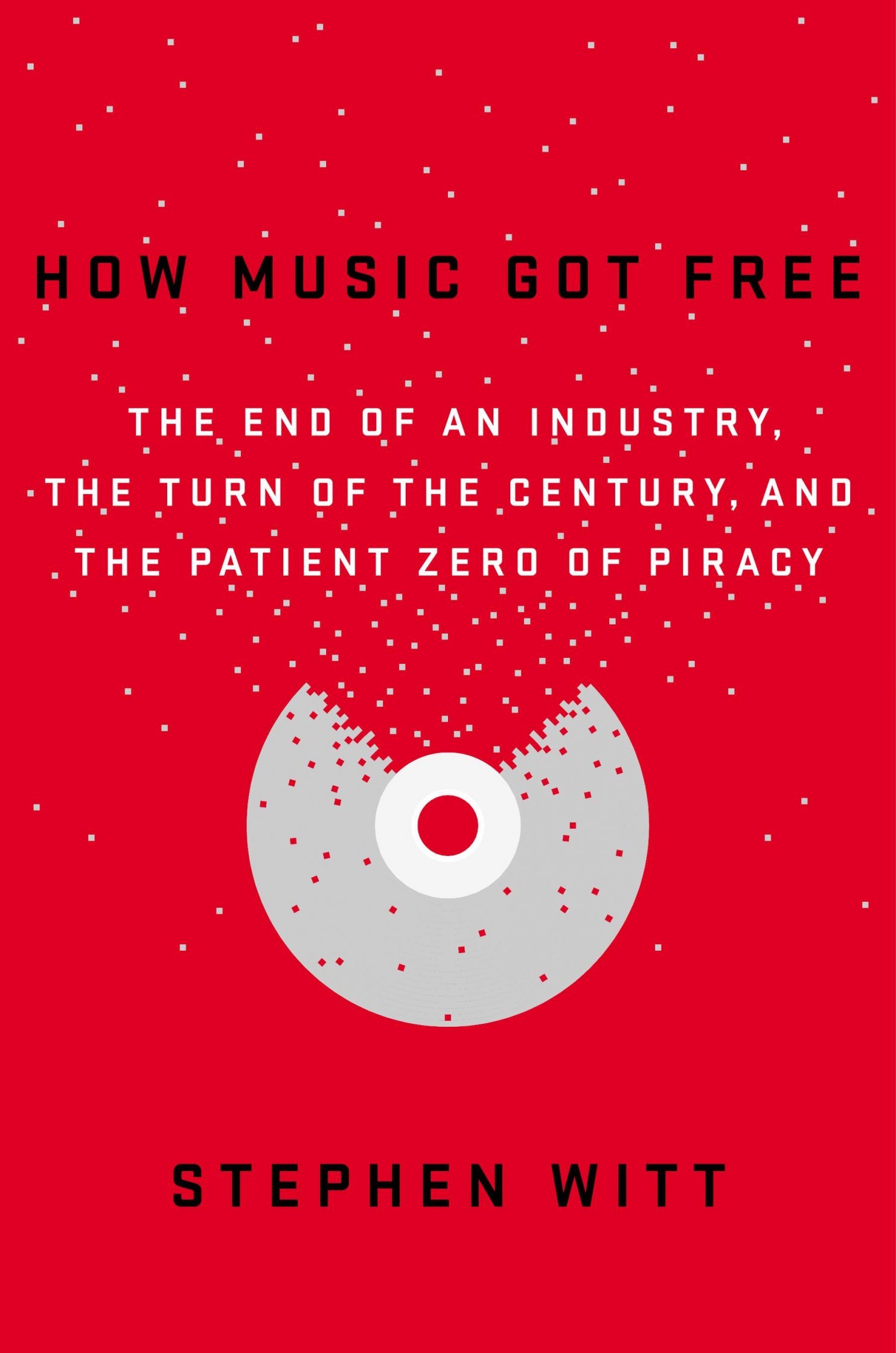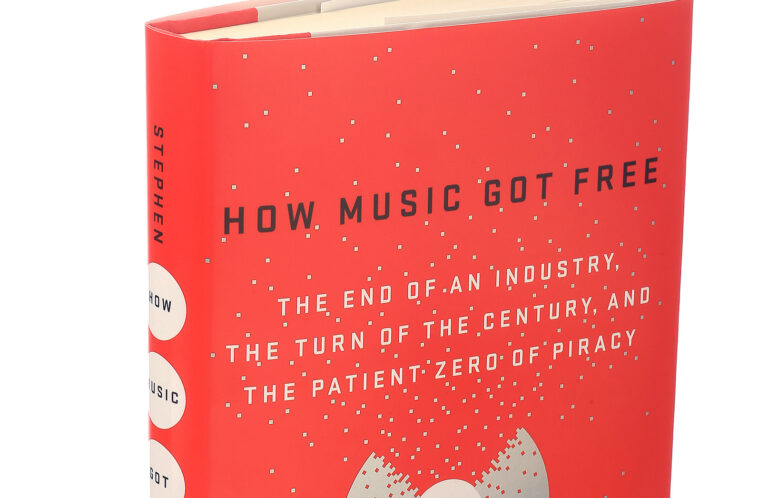Must-read new book uncovers the sordid tale of the record industry’s implosion
 How Music Got Free: The End of an Industry, the Turn of the Century, and the Patient Zero of Piracy
How Music Got Free: The End of an Industry, the Turn of the Century, and the Patient Zero of Piracyby Stephen Witt
(Penguin)
In A Word: Illuminating
How do you make a technology story come alive? Tell it through its personalities, those crazy geeks with their compulsions, flaws and skewed views of the world. Make it a tale of unintended – and intended – consequences. Throw in some showbiz razzle dazzle. Better yet, just use Stephen Witt’s How Music Got Free as a template.
Witt’s title implies a question: How did music get free? How did the music industry go from 2000, the greatest, most lucrative year in its history, to the sad, broken shell it is today? You may think you know the answer to that question. Maybe you’d say it was the invention of the MP3, peer-to-peer networks, Torrents and the “sharing” (aka piracy) these new technologies enabled. Maybe you’d blame record company incompetence and greed, or the coming of age of a generation that has never paid for a CD. As this well-researched book reveals, those big-picture truths only hint at the full story, a story with ramifications for the future, or lack thereof, of intellectual property.
How Music Got Free is a mystery, but not a whodunit, since the perpetrators are named early and often. The mystery lies in how they’re caught and to what degree they’ll be punished. Will the pressing plant employee who leaks new releases weeks in advance go to jail? Will he help the Feds identify his darknet Scene leader? Will music uber-mogul Doug Morris be outed as out of touch? Will the inventor of the MP3 receive acclaim and riches for solving the compression problem that has allowed free music files to fly by the billions across the internet?
The book traces two decades of technological advances impacting the music industry through the stories of these people and others who developed and found new uses for those advances. Representing five years of hard-nosed reporting by a seasoned professional, it is packed with facts previously unknown to the general public or even to music industry insiders. (I should point out that my resumé includes work as a consultant at the nexus of music and technology from 1999-2002, a key period in this book.) Even those with knowledge of the broad strokes Witt paints will learn new details. Witt has a bumper crop of details and, to quote Seinfeld, “They’re real and they’re spectacular.”
Here’s a guide to some of the key players:
• Doug Morris, who has run all four of the major record conglomerates, a genius at identifying talent and besting his corporate overlords, but blinded by delusions of his own decision-making invulnerability. Morris, largely because of his devotion to rap, became the highest-paid music exec in history while presiding over massive sales declines and layoffs; he is shown making a million-dollar corporate decision on a coin flip.
• MP3 co-inventor Karlheinz Brandenburg, a high-minded underdog turned tech hero turned disingenuous capitalist pig and, finally, canny, honest and worldly wise.
• Alan Ellis, the 21-year-old creator of an illegal British MP3 collection called Oink, who built a service better organized, higher quality and more comprehensive than iTunes, ostensibly offering every version of every album ever released, “the vast majority of recorded music in history.”
• And perhaps the true star of How Music Got Free, rap fan Dell Glover, whose very existence was discovered by Witt in the footnote of an FBI press release. Glover, a family man moving up the ladder at his town’s largest employer, a CD pressing plan, repaid that trust by smuggling out discs and releasing them weeks in advance via the Scene, a closed community on the darknet.
Witt calls out the record companies for arrogance and their refusal to pass along several dollars of CD manufacturing cost savings. This decision kept the retail price of a CD at a staggering $16.98 at a time when 14,000 songs a second were being downloaded via Napster for zero cents each. By the time Napster was shut down – rather than being embraced and brought into the fold, as should have happened – the industry’s rapid descent was a foregone conclusion. U.S. music industry revenues in 2014 were $4.86 billion, 66 percent less than 1999’s $14.6 billion. That’s not a boo boo, that’s a bludgeoning.
Related: Court shuts Napster down
To make it worse for the industry, prosecutors, juries and even the music industry’s own lawyers seem unable to grasp or communicate the technological underpinnings of the cases they bring against those who damaged the business the most. Instead, it is 17,000 unlucky consumers seemingly targeted at random by the RIAA who are forced to pay what amounts to subsidies for the millions of uncaught pirates to an industry incapable of overcoming years of recklessness and ignorance to save itself.
Witt lets his politics show several times, including in a blistering attack on Bill Bennett, the former Reagan Administration education secretary and cultural scold. He calls Nickelback “Canadian douche-rockers.” And the author doesn’t hide his disgust for Edgar Bronfman Jr, the Seagram’s heir who bought and held top executive positions at such record companies as PolyGram, Universal Music and Warner Music. But even when he can’t suppress his personal opinions, Witt tells a story that mostly tries to be fair to all parties. It’s not his fault readers are left thinking the industry deserved to be brought down a peg or more. And it’s to his credit that readers will close the book with concern not only for the future of music, but for the quality of life of those who make and market it.
- The Beatles at the Hollywood Bowl in 1965: Eyewitnesses - 08/29/2023
- Amy Winehouse’s Death Still Haunts - 07/23/2023
- 12 Influential Early MTV Videos - 04/05/2023

